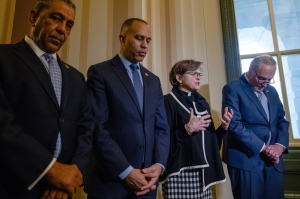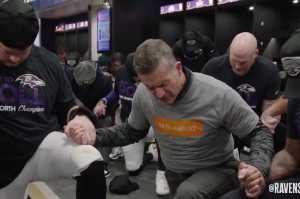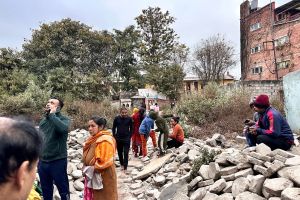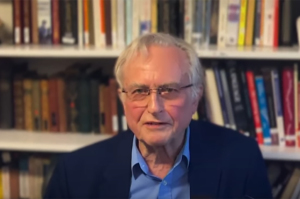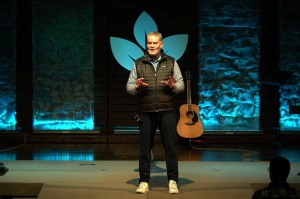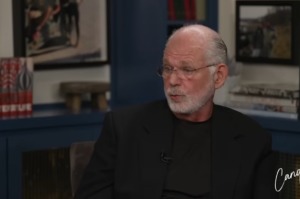Interview with Lina McCord
UMC.org, the official Web site of the United Methodist Church, is spotlighting the spiritual journey of Lina McCord, former executive director of the Black College Fund, in this month's "UMC.org Profiles" audio-feature. The daughter of a preacher, McCord, 79, recalls the segregation she experienced growing up in the South and during the era of the old Central Jurisdiction. The racially segregated Central Jurisdiction of the former Methodist Church was eliminated in 1968, when the Evangelical United Brethren and Methodist churches merged to form the United Methodist Church. One of the first black employees at the United Methodist Board of Higher Education and Ministry, McCord helped pioneer the Black College Fund intern program that now carries her name. She is retired and living in Nashville, Tenn.
Q: I understand your father was a pastor. How did being a "preacher's kid" influence your life?
A: Who I am, what I've done through the years and what I'm doing even now, has been influenced by my parents, by my father being a preacher. In those days it was very difficult to be a black preacher. My father was not an educated man in terms of years of schooling, that sort of thing, but he was self-taught and very dedicated to the goals that he had in mind and the goals that he had for us children.
My father served at several churches and we moved several times; all of the moves were to small churches. I always felt loved and cared for not only by our family but also by the members of our churches.
Q: Describe the churches you grew up in. What roles did you play?
A: My whole life has been spent in three areas - in our home, in our church and in our school. My father moved, I can remember, three or four times when I was a very little girl. But there came a point when my mother decided we're going to buy a home and we're going to stay in one place until all the children finished high school. That one place was Kingsport, Tenn. It was a great time in my life. My parents expected us to go to church. There could be other things going on in the community, but we had to do what we had to do at church first. So at a very early period in my life I was singing in the choir, I was taking up the collection and ushering, and playing the piano. All of us (children) were able to play piano just well enough to get a hymn going for service.
My father always taught us that he was the minister/the pastor of the church and he expected certain things of other people but he could not expect things of other people that he could not get from his children. So that was an interesting part of my growing up. I always said that we were encouraged to be all that we could be.
Q: Did you face segregation and prejudice as you were growing up?
A: Yes, because we just grew up in a segregated society. That was a given. I didn't know how much that was true because I think my father and my mother shielded us from a lot. We were able to have contact with the other race, and they were as giving and loving as they could be under the circumstances. I think they always looked at us as being poor. So they shared so much.
I later learned how difficult it was when I got out into the world. Just for an example: In Kingsport, where we spent most of our formative years, we went any place we wanted, walked down any streets. People were very courteous to us. We had no difficulty there.
Q: How did your Christian faith help you overcome those obstacles?
McCord: It is hard to get (financial) support for a black church. My dad did any kind of menial work to keep his family going. I never felt deprived. I knew after I got out into the world that there was a lot more that I didn't have. But you don't miss what you don't have.
My father made it a point that he wanted me to go on to school, to make something of myself. That's the reason, I think, that I had a good life because of what he taught me. I have told my children and my grandchildren to think about what they want. I have told them to determine that for themselves and not to let somebody else define their lives for them.
Q: What do you recall about the Central Jurisdiction and the eventual merging of the United Methodist Church?
A: Well, we were in the church prior to Central Jurisdiction. I did not understand it; I just knew that we were traveling distances for my father's pastorate. I do remember the Central Jurisdiction very well and know that the church was divided into geographical jurisdictions except for Central Jurisdiction, and that meant that those people were scattered around all over. But even with that, they managed to know each other and support each other.
Moving from the Central Jurisdiction to the other geographical jurisdictions (after the merger), there was great difficulty in handling some things because there was inequity in the salaries, benefits and so forth. So those were all details that had to be worked out. But it moved faster than I thought it would move.
Q: What were the paths that led you to become the director of the Black College Fund for the United Methodist Board of Higher Education and Ministry?
A: I have worked in the church most of my life. After I finished college, I went to Morristown (Tenn.) and I worked there for almost a year until I married. My husband (Jerry) and I went to Atlanta, and I worked again in seminary for several years while he was a student at Morehouse College. When his mother became ill we moved to Nashville to take care of her and my father-in-law.
Much to my surprise, Dr. (James) Thomas, who is now a retired bishop in the church, called me one day and asked me if I would consider coming to work at the Board of Higher Education. And I said, 'Yeah, sure I will.' I didn't know anything about the job or what it would entail, but I did know that it was a good place. I liked him and his family. So that's how I came to the board. That was in 1959, I believe.
Q: What was your degree in?
A: I got a degree in business administration. I went to Morristown for two years; from there I went to Tennessee State (University) in Nashville and got a degree in business administration.
Q: What was it like coming to the board of education?
A: I was not trained specifically to do anything with religion or Christian education. The church was just a part of our lives that we could not escape. So coming to work at the board was a very interesting situation.
There were four blacks working at the board at the time. And we had all kinds of facilities at the board to accommodate black folks who came to Nashville. They had a guesthouse right next door where people could stay. And we were served our meals there. But a lot of people from the community came there to eat. They came to eat with us, but we could not go some place else together to eat. You never felt segregated as long as you were in the building. But when you had to step outside of that building, you could feel it.
Q: What were your job responsibilities?
A: I worked for Dr. Thomas and his work was to be the liaison between the agency and at that time the 12 black colleges. When he was elected to the episcopacy, I was his secretary. I shall never forget, Dr. (John Owen) Gross who was the general secretary of the Board of Higher Education, called me from Daytona Beach to tell me Dr. Thomas had been elected to the episcopacy. He said, "You will have a job at the agency as long as I live." And he paid me a very great compliment because he said, "You know more about that board, the work that the colleges do and the funds that have been raised for them and the interpretation and promoting of them than anybody else we know."
Q: What is the history of the black schools and colleges?
A: The Freedman's Aid Society established the United Methodist-related black schools and colleges. At first, there were 30 or more schools, then they came down to 12, and now there are 11. The money was provided through the Freedman's Aid Society for them. Then it progressed from the Freedman's Aid Society to a day called Race Relations Sunday. And that was supplementing what money that was left as a little endowment from the Freedman's Aid Society. Then, the two years prior to the Black College Fund, (the Board of Higher Education) had Negro Colleges Advance.
It didn't just start being the Black College Fund, but it progressed, and at every step it was like a testing of what could be next. The colleges are very important to the church. And I think they realize that now, that these institutions should be here. They have always done a good job of training children. These schools have reached out to the neglected and needy persons who need an education and would take them in at whatever level they were in life. These schools are held to a high standard. They are worth whatever amount of money has been invested in them.
Q: How was the idea for the student itineration born? Has it been a successful program?
A: We think that the first itineration was highly successful. Paula Watson, who was with United Methodist Communications, and I sat down and talked about the young people in these colleges, and how the people in the church didn't know the colleges and didn't know the students. We decided to do a pilot program with two students. We brought them in, taught them about the church, made sure they understood how the church worked and what their roles were. We told them most of these people wouldn't see the college, but we said, "They will see you."
We asked two young women to travel around the country for 10 weeks. They were so excited. They were going to go places they had never been before. They came back in such glowing praise of their experiences. They went to places where people had never seen a black person before, and here they were having a black person in their church, speaking to them about the colleges.
But that was just the beginning. After their experience, we made the decision that we would take five students each summer and place them in the various jurisdictions. And the people adored them and they still do. That's one of the things that you hear all the time. "Tell me about the interns" or "Tell me about the students who were itinerating." So it just grew from one year to the next. If you look at the number of students who've gone out, a large number of them have gone into the ministry. And that's kind of exciting.
The Black College Fund was one of the greatest things that happened for our institutions because not only did they set goals for it, but goals for the way that the funds would be distributed. The schools have been able to do great capital improvements on their campuses. They've even built some buildings. And then there was money that was there to support the basic budget. You see, we never had large endowments, and therefore every penny that came went for day-to-day operations or whatever was needed. The Black College Fund has filled that goal. There are people who will give money for scholarships but will not give money for the everyday operations. And it's so important. If you go around to any of these campuses recently, you will see they are beautiful.
Students continue to go to black colleges for several reasons. Sometimes they can't afford to go any place else. Sometimes it's because their parents have been there and want their children to go also. But most of them go because in a small black college you have an opportunity to be a leader, to stand up and perform and do what is necessary. It gives you some very good hands-on experiences of how you get out and meet people in the world and just step forward and do things. So it's played a lot of good roles for our students.
Q: How do you want to be remembered for your life's work?
A: It has never been about me. It's been about the colleges and the students who attend them. I would like for people to remember me as a person who was very concerned and who is concerned about black higher education. And don't say that black schools are not needed. All schools are needed because they meet someone's needs.
I don't have any real thing I want people to remember me for. If it's worth remembering, each person that I've met along the way will have some opinion about me and for me. But you know, I think most people would say, "She was a caring and nurturing person." And that's important. But I don't want to be noted for any thing, but just know that I've been a part of something that was important for somebody else.
By Kathy L. Gilbert
















